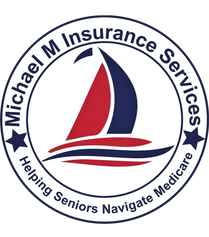Medicare is a crucial part of healthcare for individuals turning 65, but navigating enrollment and
coverage options can be confusing. Making the wrong decision can lead to penalties, gaps in
coverage, and unnecessary expenses. To help you make informed choices, here are the top five
Medicare mistakes and how to avoid them.
Mistake #1: Missing Your Medicare Enrollment Window
One of the most common and costly mistakes is missing your Initial Enrollment Period (IEP).
Your IEP is a seven-month window that starts three months before your 65th birthday,
includes your birthday month, and continues for three months afterward. If you do not enroll in
Medicare during this period, you could face late enrollment penalties that increase your
monthly premiums for life.
How to Avoid It:
- Mark your calendar and start researching Medicare options at least six months before you turn 65.
- If you are still working and covered by an employer’s health plan, verify if you need to enroll in Medicare or if your employer coverage qualifies as creditable coverage and you can delay signing up.
- Sign up for Medicare Part A and/or Part B on time to avoid penalties unless you have credible employer coverage.
Mistake #2: Not Signing Up for a Medicare Part D Plan
Many people mistakenly think they don’t need a Medicare Part D plan because they don’t take
prescription drugs. However, if you delay enrolling in Medicare Part D when you are first
eligible, you may have to pay a permanent late enrollment penalty when you do decide to sign
up.
How to Avoid It:
- Even if you don’t currently take medications, it’s wise to enroll in a Medicare Part D plan to avoid penalties and ensure coverage for future prescriptions.
- Compare different plans to find one with low premiums that fits your needs.
- Look for Medicare Advantage plans (Part C) that include prescription drug coverage if you prefer an all-in-one plan.
Mistake #3: Choosing the Wrong Medicare Plan
Many beneficiaries do not fully understand the difference between Original Medicare (Part A
and Part B), Medicare Advantage (Part C), and Medigap (Medicare Supplement). Choosing
the wrong plan can result in higher out-of-pocket costs or restrictions on doctors and hospitals.
How to Avoid It:
- Original Medicare allows you to see any doctor or hospital that accepts Medicare, but it does not cover all costs, so you may need a Medicare Supplement (Medigap) plan.
- Medicare Advantage offers extra benefits like dental, vision, and hearing coverage, but often requires you to use a network of providers.
- Work with a licensed Medicare advisor to compare plans based on your healthcare needs and budget.
- Use the Medicare Plan Finder tool on Medicare.gov to compare costs and coverage.
Mistake #4: Ignoring Out-of-Pocket Costs
Many people assume Medicare covers all healthcare expenses, but that is not the case.
Medicare has deductibles, copayments, and coinsurance costs that can add up quickly if
you are not prepared.
How to Avoid It:
- Understand that Medicare Part A has a hospital deductible, and Medicare Part B has a monthly premium and 20% coinsurance for outpatient care.
- Consider enrolling in a Medicare Supplement (Medigap) policy to help cover out-of-pocket expenses.
- If you choose Medicare Advantage (Part C), review copayments, out-of-pocket maximums, and provider networks to ensure affordability
Mistake #5: Not Reviewing Your Coverage Annually
Medicare plans change every year, including premiums, provider networks, and covered
medications. If you do not review your plan annually, you may be paying higher premiums or
losing access to preferred doctors and medications.
How to Avoid It:
- Use the Annual Enrollment Period (AEP) from October 15 to December 7 to review your plan and make changes if necessary.
- If you are enrolled in Medicare Advantage, take advantage of the Open Enrollment Period (OEP) from January 1 to March 31 to switch to another Advantage plan or return to Original Medicare.
- Compare drug coverage under Medicare Part D each year to ensure your medications are covered at the lowest possible cost.
Final Thoughts: Making Smart Medicare Decisions
Understanding Medicare and avoiding these common mistakes can save you thousands of
dollars in unnecessary expenses. Take the time to research your options, enroll on time, and
review your coverage annually. By making informed decisions, you can enjoy the benefits of
Medicare without the stress of unexpected costs or coverage gaps.
Will Medicare contact me when I am eligible for Medicare Coverage?
No, Medicare does contact you about your Medicare eligibility but, if you
are collecting Social Security you will be enrolled automatically.
- I don’t take Medications, do I have to have an Rx Plan?
Yes, Medicare requires you to have a Part D Rx plan even if you don’t
take Meds and you will be penalized if you don’t get on when first eligible
I am still working, can I keep my employer coverage?
Yes, as long as your employer has over 20 employees the coverage is
considered creditable and you can delay signing up for Medicare.
Mike Miligi- Owner
For over 10 years, Mike has been assisting Seniors and other Medicare-eligible individuals in understanding the ins and outs of Medicare and Medicare Health Insurance options, including Medicare Advantage Plans(Part C), Medicare Supplement Plans(Medigap), Prescription Drug Plans(PartD), and Dental and Vision programs.
Mike is Licensed in seven States and Certified with 11 Insurance Carriers. He has helped thousands of individuals decide on the best course of action for their particular Health Insurance needs. Because Mike is an Independent Medicare Health Insurance Broker, he works for the client, not the Insurance Carriers, and is able to provide his clients with accurate and unbiased Health Insurance options.
Mike recertifies with CMS(The Centers for Medicare and Medicaid Services) annually, regularly completes Continuing Education Courses required by individual State Insurance Departments, and keeps abreast of industry trends and standards to offer his clients the most up-to-date information.

